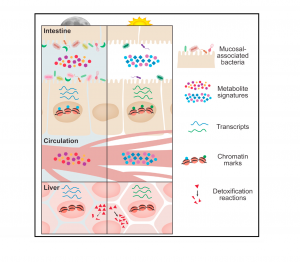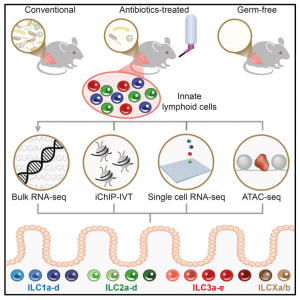Persistent microbiome alterations modulate the rate of post-dieting weight regain
In tackling the obesity pandemic, significant efforts are devoted to the development of effective weight reduction strategies, yet many dieting individuals fail to maintain a long-term weight reduction, and instead undergo excessive weight regain cycles. The mechanisms driving recurrent post-dieting obesity remain largely elusive. Here, we identify an intestinal microbiome signature that persists after successful dieting of obese mice, which contributes to faster weight regain and metabolic aberrations upon re-exposure to obesity-promoting conditions and transmits the accelerated weight regain phenotype upon inter-animal transfer. We develop a machine-learning algorithm that enables personalized microbiome-based prediction of the extent of post-dieting weight regain. Additionally, we find that the microbiome contributes to diminished post-dieting flavonoid levels and reduced energy expenditure, and demonstrate that flavonoid-based ‘post-biotic’ intervention ameliorates excessive secondary weight gain. Together, our data highlight a possible microbiome contribution to accelerated post-dieting weight regain, and suggest that microbiome-targeting approaches may help to diagnose and treat this common disorder.
Visit full artice page: https://www.nature.com/articles/nature20796

